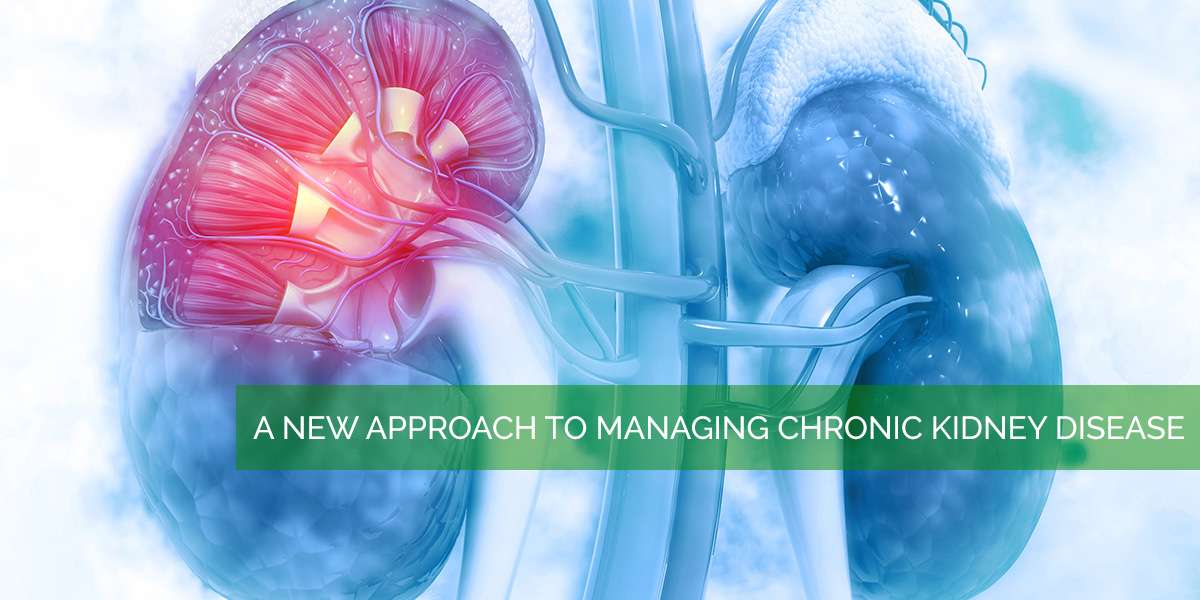Cannabis Nutrition Therapy: A New Approach to Managing Chronic Kidney Disease

What is Chronic Kidney Disease?
Chronic Kidney Disease (CKD) is when your kidneys are damaged given various reasons, and they can no longer filter blood properly to rid the body of toxins and waste. The damage occurs over time and waste will slowly build up in the body. This can lead to other health problems and/or worsen current medical conditions. The kidneys are responsible for filtering water and waste, which we excrete as urine.
The kidneys are also in charge of balancing minerals including sodium, potassium, phosphorus, and calcium. The kidneys assist in making hormones to control blood pressure, maintain bone strength, and aid in the production of red blood cells. In severe and advanced cases, patients may require dialysis or a kidney transplant. Diabetes, high blood pressure, heart disease, and family history are common risk factors for chronic kidney disease.
Does Nutrition Play A Part in CKD?
With the potential to worsen or improve kidney function, nutrition plays a major role in the development of CKD. The DASH diet (Dietary Approaches to Stop Hypertension), Mediterranean diet, and plant-based diet have shown promising results in improving and maintaining kidney function. Focusing on nutritional intake as a whole is an attainable approach to overall well-being and health.
There is no one singular diet for chronic kidney disease, although nutritional patterns emphasizing
- fruits,
- vegetables,
- whole grains,
- and legumes
while limiting
- red meat,
- high sodium foods,
- and refined carbohydrate sugars are known to benefit kidney health.

While ensuring adequate micro- and macro-nutrient intake, it is also important to be mindful of how much protein, sodium, potassium, and phosphorus is being consumed depending on stage of CKD and whether or not dialysis is part of treatment. It is important to consult your Doctor and a Registered Dietitian for nutritional treatment of CKD.
Does Medical Cannabis Really Help?
Medical Cannabis use in chronic kidney disease is an area needing more research to make conclusions about the relationship between the two. When it comes to medical cannabis, it is important to note the cannabis regimen are being used for symptom control, improvement in quality of life, and potentially slowing progression of disease. With CKD, cannabis can be beneficial in providing pain relief and improving appetite to prevent malnutrition or unintentional weight loss due to side effects from the disease state.
Non-steroidal anti-inflammatory medications (NSAIDs – ex: Tylenol) should be avoided in someone diagnosed with CKD therefore THC, CBD, and other phytocannabinoids can be utilized for pain relief and act as anti-inflammatory agents. Maintaining a stable, healthy weight without any severe, unintentional weight loss is essential in keeping the body nourished to prolong worsening kidney function.
Medical cannabis can be utilized in improving appetite and nutritional intake as several strains, terpenes, and cannabinoids can reduce nausea and increase hunger. Cannabis can potentially help with other chronic kidney disease related symptoms such as muscle spasms and insomnia.
Resources
- S. Department of Health and Human Services. (n.d.). What is chronic kidney disease? – niddk. National Institute of Diabetes and Digestive and Kidney Diseases. Retrieved April 11, 2023, from https://www.niddk.nih.gov/health-information/kidney-disease/chronic-kidney-disease-ckd/what-is-chronic-kidney-disease
- MNT in chronic kidney disease – today’s Dietitian Magazine. Today’s Dietitian. (n.d.). Retrieved April 11, 2023, from https://www.todaysdietitian.com/newarchives/JJ21p40.shtml
- Author links open overlay panel Kevin Gitau 1, 1, 5, 6, 2, 3, 4, & Rationale & Objective Cannabis use may be helpful for symptom management in patients with chronic kidney disease (CKD). Knowledge. (2022, March 18). Therapeutic cannabis use in kidney disease: A survey of Canadian nephrologists. Kidney Medicine. Retrieved April 11, 2023, from https://www.sciencedirect.com/science/article/pii/S2590059522000668.
LEARN MORE
Give us a call at (904) 586-0041 or submit a short application today!




